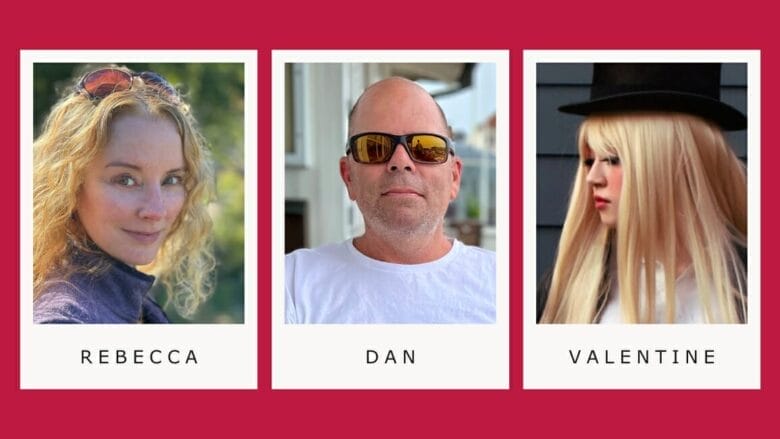This article is a reprint from the december 2020 DANES magazine.
Text: Elisabeth Geday, Geday Executive Consulting (elisabeth@geday-consult.dk)
Prepare for a job interview like you would for an important meeting or an exam. Here are some tips from all of us at Genux Executive, where every day we help candidates prepare for interviews. The better prepared the applicant, the better the process for all parties.
This guide is based on the typical course of a job interview in Denmark for salaried and management positions in the public and private sectors.
Before the interview
Know the framework, the people and the organisation: Think of yourself as a journalist tasked with collecting information about an organisation and an interviewer. First off, you have to know the process and the framework of the job interview(s). How many interviews have been planned? How much time has been allotted for each interview? Does the process involve recruitment tests and cases? Where are interviews going to take place? How can you make sure you arrive on time – and preferably slightly early?
Who is participating in the process, and what are their roles? Do your research in advance (e.g. via LinkedIn or Google) and print out portraits that you can write a few notes on. If you do this right, it can come across as positive that you are already familiar with the faces and names on arrival. This is especially true if you are being interviewed by a large hiring committee, as is often the case in public sector contexts. You can also use information gathered during your preparations to establish a good rapport with members of the hiring committee during the process. But be careful not to come across as a spy, in which case your efforts will have the opposite effect.
What is currently going on in the company or organisation that will be interviewing you? You know about the job from the vacancy announcement, but a lot of other factors can be at play. Therefore, you should also research the company to gather knowledge about recent media coverage, general financial performance, staff turnover, etc. You may not end up using this information for any specific purpose, but if you can naturally demonstrate your insight during the interview, this may impress the hiring committee.
Is a recruitment consultant or agency involved in the hiring process? If so, make sure you also research this person or organisation. How does the company typically organise the process? A company will usually use the same recruitment tests every time, and it may be helpful if you are familiar with them. For example, do they use logical tests to measure your analytical abilities? It might be a good idea to brush up on mathematics and geometry, or practice analogy quizzes ahead of the interview. Some Danish sites for doing this include testttalent.dk/pi-li-pli-tests-paa-dansk/ and iq-test.illvid.dk.
About you
There are some questions that you will almost always be asked in an interview. You might as well prepare your answers in advance. The first is: “Tell us a little about yourself!”
You should use your “elevator speech” here. The elevator speech is structured in the same way as an old-fashioned press release: the most important information comes first, so that you can stop at any point in the speech depending on how much time you have.
The elevator speech must provide a short and precise answer to these questions:
- Who are you? (What is you name and position?)
- What do you do?(What are your responsibilities and tasks in your current job?)
- What do you want? (What are you passionate about and what is important to you in a future job?)
- What are you capable of doing?
- What are your key competencies for the position and what makes you stand out?
- What are your biggest and most relevant past successes?
- How can you add value to the company/organisation?
You have, of course, prepared and practiced this speech at home with assistance and feedback from people you trust. If you expect the hiring committee to ask you other questions – for example, about “gaps in your CV” or a sudden departure from a past job – prepare strong, brief answers in advance. Questions about your family life, your health or plans to have children are not appropriate, but nonetheless you should consider how you would respond if you were asked such questions.
The question of pay will come up at some point in the process. It is important that you have considered in advance whether you have a minimum limit that you are unwilling to negotiate below. Early on in the process, the headhunter or hiring coordinator will ask about your current pay or an estimate of your pay expectations. They will do this to ensure that there are grounds to continue considering you for the position.
Think about your appearance and plan your attire to match the culture of the company and the job you are seeking. If you are unsure, check photos from the company in advance. Remember that your appearance is a form of communication. If your shoes are dull and slightly dirty or if your shirt is wrinkled, you may not be detail-oriented – or even downright sloppy – in your work. Under all circumstances, it certainly will not be to your benefit in the recruitment process.
The job interview
Not all interviews are the same, but many elements are seen in every recruitment process. Here we are describing a typical process for salaried positions in Denmark.
There will often be two rounds of interviews, which begin with a preliminary screening interview, where you may have 30 to 60 minutes with all or some of the hiring committee. If a headhunter is involved in the process, she or he may conduct the screening alone. The interview typically begins with the committee members presenting themselves and then inviting you to say a few words. This is your opportunity to deliver your elevator speech. Most of what you say is probably already in your written application, so the information you share is not new to the committee. Therefore, the main focus here is on your delivery: do you present yourself well? Are you convincing and genuinely committed, and do you come across as authentic? Are you able to “read the room” and adapt your conduct and speech accordingly? The committee will then ask you a couple of questions and the interview will come to an end. Anywhere from 10 to 20 applicants may be called in for these screening interviews.
What are the first three things you would start by doing if you were hired for the job?
After the screening, the company will usually cut the number of candidates in half (or even more). If you have not been selected for the next round of the process, it is usually because other candidates were particularly convincing, as they had a clear profile and a clear value proposition for the company.
The second interview
More time is allotted for the second interview – often 60 to 90 minutes. The interviewer will typically start by presenting the planned progression of the interview. Listen carefully and remember that you are participating in a two-way conversation. You must not be too humble or too dominant. Your “I” should be visible, but so should your “we”. Use your social intelligence. The committee will usually start by talking about the position, the company, and the major challenges they face. Then they will give you an opportunity to ask questions and talk about how you view the situation and your potential contribution to solutions. This is where you can present your proposals based on your thorough preparation.
There will often be two rounds of interviews, which begin with a preliminary screening interview.
The hiring committee may have some questions about your CV and/or your application. To examine your reasons for applying, they will often ask, “Why do you want to work for us specifically?” Or, “What are the first three things you would start by doing if you were hired for the job?” Or, “How would you describe your management style?” This question is relevant if you are applying for a management position, but also if you will be heading a project or a campaign.
You may also have some questions about the job. You can find articles online that propose questions you can ask as an applicant, e.g. review.firstround.com/the-40-best-questions-to-ask-in-an-interview-how-to-go-deeper-than-whats-the-culture-like
But be careful! Many of these question seem rehearsed, so the committee may take it as you attempting to appear insightful rather than having a genuine interest in the answer. Only ask questions if the answer means something to you and your interest in the job. It’s always a good idea to round off an interview by asking, “Is there anything that we didn’t touch on yet?”
In many hiring processes, the HR department or headhunter will send you a link to a personality profile test. There are many different types of recruitment profiling tools or tests on the market. Some of the most common are SHL OPQ, DISK, Persolog, People Test System and Hogan. Sometimes they profile
your personality traits, your strengths and your weaknesses. Other times, they also test your analytical skills (your IQ). You answer a large number of questions (from 150 to 500) at home from your computer, after which you receive a response. Sometimes you will receive a computer-generated email message. Other times you will be invited to a separate meeting, in which the HR consultant or headhunter shares the test results and asks for your views on the result. How do you use your personal strengths, and how do you deal with your weaknesses? This interview provides insight on how aware you are of your abilities and where you need to improve. This is a key piece of insight used in choosing a candidate for the job.

Contact the counselling service
Our lawyers can help with advice and case processing in areas such as family reunification, citizenship, tax, pension and moving in and out of Denmark.
Many companies ask the applicant to complete a case study assignment during the hiring process. You will be given an assignment by the company, which will typically relate to the tasks of the job you’re applying for. How will you ensure budget compliance in an organisation under constant high pressure to perform and deliver? How will you plan and execute an effective campaign that reaches the difficult target groups? How will you implement a necessary change that is resisted by your colleagues? You are typically given a brief description of the situation, followed by two or three questions you must answer. Some times you will receive the case in advance by email – other times you will receive it when you arrive for the interview. If you receive a case in advance, be thorough and prepare an attractive presentation, e.g. a PowerPoint slideshow. Print copies for the committee so that you are not dependent on the company’s A/V equipment, which could become an unnecessary stress factor.
Right before or after the last interview, the company will typically contact a couple of the references you have provided in your CV. Make sure that the company has to go through you to get the contact information, so that you can notify your references of the forthcoming enquiry.
After the last interview
After this process, which can take up to two months, the company is finally ready to make its decision and offer the job to the chosen candidate and begin contract negotiations. If you are the chosen candidate, this is the time to convey your pay expectations and other wishes. It’s always a good idea to send a copy of the contract to your labour union or a lawyer before signing.
If you are not chosen for the job, take the time to assess the process. If they do not reach out first, you can contact the HR consultant, executive or headhunter for personal feedback. Ask about the determining factors in their decision.
Ask about what you did well, and what you could do better another time. You can always use a job application process to your benefit. You have put a huge amount of work into preparing an application, going through the interviews, taking the tests, doing the case assignments… and it can feel like it was all for nothing if you end up coming in second place. The fact is, though, that this practice will keep you sharp and ready for the next time an opportunity arises. The better prepared you are and the more you practice, the greater your chances of success. This is true in almost every aspect of life – including job search processes.




